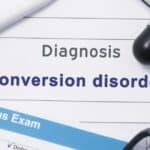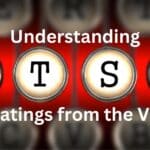There are various mental illnesses that can qualify someone for disability benefits. In fact, approximately one-third of disability beneficiaries received a mental disorder diagnosis in 2013, reports the Social Security Administration (SSA).
However, getting Social Security disability for a mental illness in Raleigh is typically more challenging for mental disorders than for physical impairments. This is because most mental illnesses are subjective in nature, diagnosable primarily by using mental evaluations and patient feedback, not with tangible biological tests like blood work or brain scans. So, since mental disabilities are harder to measure objectively, it may be tougher for applicants to prove that they are genuinely disabled to the SSA.
Our disability lawyers at Lunn & Forro, PLLC can help. We have a passion for helping those with mental illnesses collect the benefits they need and deserve. For help getting approved for disability benefits, call 888-966-6566 for a free consultation.
How does the SSA evaluate claims based on mental illnesses?
When the claims examiner reviews an application for disability benefits, he or she will first check to see if your condition is one of those listed in the Blue Book. This federal guide provides a detailed Listing of Impairments that the SSA deems likely disabling. If your mental illness is on the list and meets the criteria, the SSA will likely accept that you cannot work and determine you as disabled.
Section 12 of the Blue Book lists all the mental disorders that the Administration assumes will keep you from working. Below are some of the listed impairments:
- Schizophrenic, paranoid, and other psychotic disorders
- Affective disorders such as bipolar disorder and depressive syndrome
- Intellectual disabilities
- Post Traumatic Stress Disorder
- Anxiety-related disorders such as agoraphobia
- Somatoform and conversion disorders
- Personality disorders such as Borderline Personality Disorder
- Autistic disorder and other pervasive developmental disorders
What criteria are necessary to establish a mental illness?
The SSA requires a certain degree of severity to consider a mental illness a qualifying disability. The Administration evaluates each specific type of ailment differently, the details of which are in the Blue Book.
For example, to qualify for disability based on a somatoform disorder such as pain disorder or hypochondriasis, you must meet two specific requirements:
- You must have medically documented evidence of one of the following: 1) a history of multiple physical symptoms of several years’ duration, beginning before age 30, that have caused you to take medicine frequently, see a physician often, and alter life patterns significantly; 2) persistent nonorganic disturbance of vision, speech, hearing, use of a limb, control of movement, or sensation; or 3) an unrealistic interpretation of physical signs or sensations associated with the preoccupation or belief that one has a serious disease or injury.
- Your condition has resulted in at least two of the following: marked restriction of activities of daily living; marked difficulties in maintaining social functioning; marked difficulties in maintaining concentration, persistence, or pace; or repeated episodes of decompensation, each of extended duration.
But even if your illness does not meet the criteria listed above, you may be eligible for benefits if your condition keeps you from engaging in “substantial gainful activity” (SGA).
What other criteria does the SSA require for disability benefits?
As aforementioned, the first requirement for benefits is to have a disabling condition that is on the Listing of Impairments or a mental illness so severe that it keeps you from working. There are also a few other criteria you must satisfy to collect disability:
- Your condition must have lasted or be expected to last a year or more (or result in death).
- You must have sufficient work credits on your record. Each year that you worked at a job in which you had Social Security taxes withheld, you essentially were buying into the Social Security Disability Insurance (SSDI) program. The number of work credits required depend upon your age. Young workers may only need six credits, for example, whereas older workers may need 40.
- If you haven’t worked long or recent enough to qualify for SSDI, you may instead be able to collect benefits under a different program for disabled persons with limited resources: Supplemental Security Income (SSI).
An attorney can help you determine if you meet the criteria for disability benefits, which program would suit you, and how to best proceed with your claim.
How to I prove my mental disability to the SSA?
You will need to provide substantial medical evidence from your treating physicians, mental health practitioners, counselors, and therapists that proves the severity of your condition to the SSA. This evidence is critical to win your benefits.
You can also have your doctor fill out what is called a mental RFC, which assesses your “residual functional capacity.” The SSA will take the input on the form into consideration when deciding whether it thinks you can work. The RFC form assesses your intellectual, memory, concentration, adaptive, and social functioning abilities, and the degree of your limitations.
Other evidence that may be useful in demonstrating your disability to the SSA is testimonies from your family, friends, coworkers, employer, social workers, teachers, etc. that illustrate the effect your mental illness is having on your ability to work.
Get Help with Your Disability Claim at Lunn & Forro, PLLC
It is notably challenging to win benefits for mental illnesses, a fact that is frustrating for people who are suffering from mental impairments and are legally entitled to benefits. But rest assured, it can be done so long as you have adequate supportive evidence.
The Raleigh disability lawyers at Lunn & Forro, PLLC care deeply about helping people living with disabilities in Raleigh. We can help gather the evidence necessary to support your claim, walk you through the claims process, and appeal a denial if necessary.
For questions about disability benefits or for help with your application, call 888-966-6566 and request a free consultation.
Related Posts

What are the Disability Listings for a Social Security Claim?
The disability listings can make it easier for you to qualify for Social Security disability benefits. If you are considering filing an application for Social

How do I file a VA claim for PTSD?
If you are filing a claim for PTSD, you need to complete VA form 21-0781 to submit with your application for VA compensation. This form

Can You Get Disability for Conversion Disorder?
Conversion disorder is a mental illness that causes neurological symptoms, such as paralysis or hearing loss. It is one of several conditions that fall under

Understanding VA Ratings for PTSD
If you are a veteran that lives with post-traumatic stress disorder (PTSD), you may qualify for VA disability benefits. Receiving approval for your claim can
Disability for Anxiety and Panic Attacks
Disability for anxiety and panic attacks is available to individuals who cannot work due to the severity of their symptoms. Panic disorders are not uncommon.
Is BPD a Disability? – Qualifying for Payment
Some people who suffer from Borderline Personality Disorder qualify for disability benefits. Personality disorders are characterized by unhealthy and rigid thoughts and behaviors that greatly
Is PTSD a Disability?
Post-traumatic stress disorder (PTSD), which can develop after exposure to an extremely traumatic event, is not uncommon. According to the Department of Veterans Affairs (VA),
Is an Eating Disorder a Disability?
Can I get disability for an Eating Disorder? Eating disorders can cause a host of mental, emotional, and physical symptoms that can lead to serious



